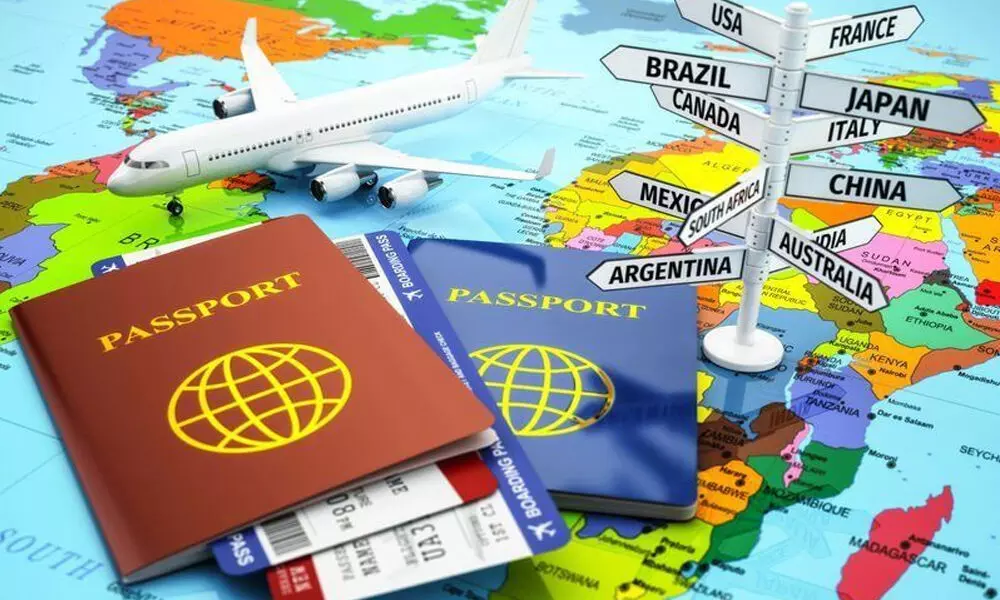Will G20 push help global tourism sector?
IATA urged G20 governments to quickly follow up their endorsement of the guidelines with actions, lists five-point agenda to safely restore mobility
image for illustrative purpose

The International Air Transport Association (IATA) welcomed the agreement by the G20 Tourism Ministers to support the safe restoration of mobility by following the G20 Rome Guidelines for the Future of Tourism. IATA urged G20 governments to quickly follow up their endorsement of the guidelines with actions, particularly the five-point agenda to safely restore mobility: Sharing information among industry and governments to inform policies and decisions to ensure safe mobility.
Agreeing common international approaches to Covid-19 testing, vaccination, certification and information. Promoting digital traveler identity, biometrics and contactless transactions for safe and seamless travel. Providing accessible, consistent, clear and updated information to travelers to encourage and facilitate travel planning and journeys. Maintaining and improving the connectivity, safety and sustainability of transport systems.
A key requirement of safe mobility is the provision and sharing of timely, accurate and transparent information on the health and safety situation in source and recipient countries. In addition, tourism industry bodies and health experts should be consulted to establish evidence on the consequences of travel restrictions and on practicalities for delivering safe travel options.
Pursue opportunities to agree common international approaches to Covid-19 testing, vaccination, certification and information on travelers to enable lifting of inbound and outbound border restrictions. Restrictions on international travel, including travel bans and quarantine requirements, have serious adverse consequences for international tourism and the wider economy. Targeted measures to prevent transmission of the virus by infected travelers should be promoted where these can be shown to be reliable. This could be achieved by appropriate authorities receiving the necessary and reliable information on a traveler, including testing and vaccination certificates and travel history, to make an individual bio-secure risk assessment.
This should require developing international standards on the necessary type, timing, frequency and facility of testing and vaccinations, and on the provision and checking of testing and vaccination certificates and travel history data, in compliance with national regulations. The implementation of such measures must take into account ethical issues of non-discrimination of travelers and guarantee the protection of data. There is also a need for clear and widespread communication strategies that are agreed and adhered to by all.
Explore ways to promote the use of digital traveler identity, biometrics and contactless transactions to facilitate safe and seamless travel. The use of such procedures has become more widespread in recent years and should be accelerated in the interests of safe mobility. Requirements include the interoperability of technologies and systems and mutual recognition of them by appropriate authorities and other users, together with respect for data privacy based on agreed international standards and principles and in accordance with national laws and regulations. Provide accessible, consistent, clear and updated information to travelers to encourage and facilitate travel planning and journeys. Information provision is a critical tool in promoting traveler confidence and safe mobility. Clarity is key for the resumption of international travel. Information strategies should seek to promote: Clarity on the health and safety situation in destinations and when returning to the origin country, including restrictions and requirements placed on travelers and access to health and emergency services.
Transparent and reliable information from operators on health and safety protocols in place, in line with international standards, and other arrangements affecting travelers including cancellation options, insurance coverage and repatriation. Mobile applications providing real-time information to guide movements, including data on areas of crowding or other health and safety factors, while respecting personal privacy. Processes for receiving feedback from travelers, to facilitate better future planning to meet their needs and information requirements. Maintain and improve the connectivity, safety and sustainability of transport systems. Transport providers have been seriously affected by the Covid-19 pandemic and the future of certain services is in doubt. Appropriate authorities should work together and with the transport sector on policies and actions to restore or maintain connectivity, while also addressing safe mobility and sustainability issues. "The G20 has the right focus and agenda to restart travel and tourism. The combination of vaccinations and testing are the drivers to make travel broadly and safely accessible. Moreover, Prime Minister Draghi's promise that Italy is ready to welcome back the world and encouragement to book holidays should be an inspiration to other world leaders. It captures the urgency that is needed to move forward quickly and safely in restoring the freedom to travel," said Willie Walsh, IATA's Director General.

